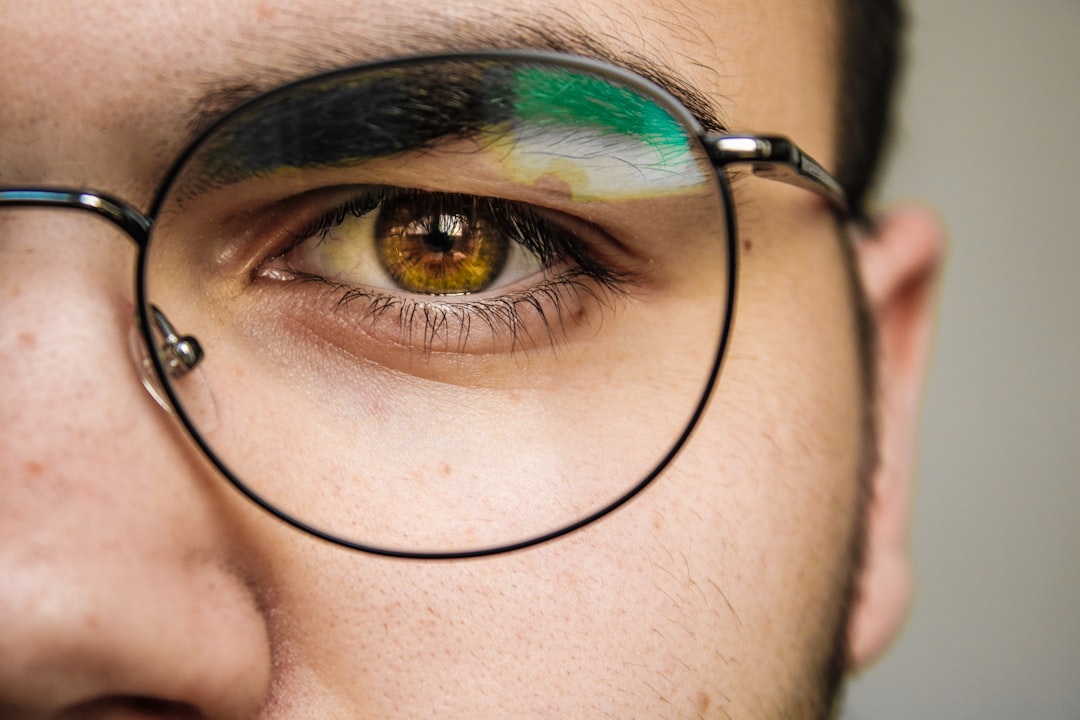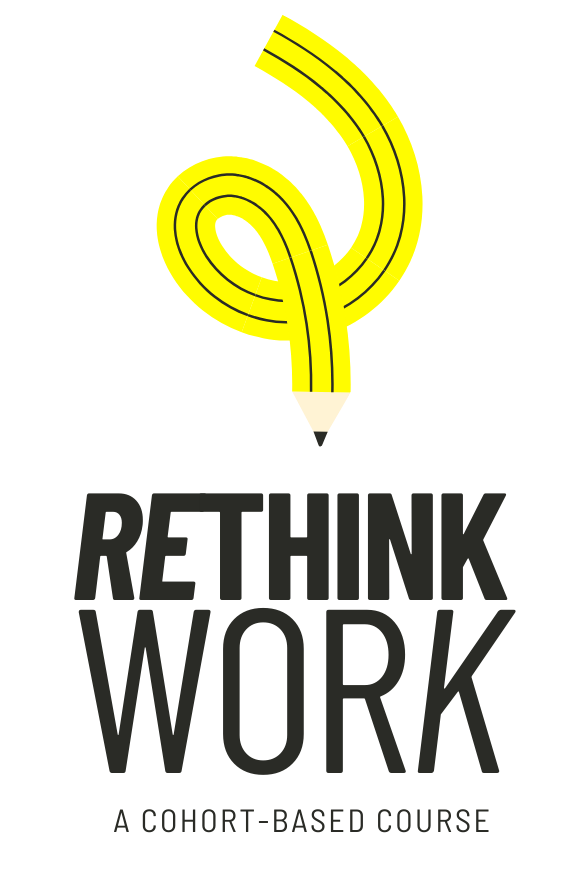Why We Need "Political Content" on Social Media
Meta excludes "political content" from its recommendation algorithm. But who decides what's political is itself political.

Rethink Work, an 8-week course on reexamining our foundational beliefs about work, starts next Thursday, February 22! Learn more and register here.
On Friday, Meta announced it would extend its approach to reducing “political content” on Facebook to its other platforms, Instagram and Threads.
In its policy, Meta states:
…we aim to avoid making recommendations that could be about politics or political issues, in line with our approach of not recommending certain types of content to those who don’t wish to see it.
To be clear, this policy doesn't limit an account's ability to reach its followers. It only concerns whether or not an account that posts political content will be recommended to users who do not follow it.
Despite this policy appearing in Meta's "transparency" area, Meta isn't transparent about what constitutes political content ("potentially related to things like laws, elections, or social topics") or how much political content an account needs to post to be removed from recommendations. However, Meta does provide a way to determine whether your Instagram/Threads account has been disqualified from Recommendations.
My goal here isn't to single out Meta but to highlight how regulating "political content" further burdens people whose identities aren't aligned with the dominant culture.
Defining political content
Sure, lots of people would prefer to log on to Facebook or Instagram without the risk of stumbling into a virtual campaign rally. But the problem with reducing “political content” is who can decide what’s “political.”
Similarly, many would prefer not to go into the office and discover it’s been transformed into a de facto lobbying firm. But again, when a workplace tries to keep politics out of the office, the problem is who gets to decide what’s “political.”
Politics—or worse, “political content” and “political issues”—means much more than who is running for office and what heinous ads they’re running on local media. Politics is a language of power. Our political disagreements are conflicts over how power is distributed and wielded. They're about who gets to make decisions for everyone else. An election is an overt power skirmish—one person representing their voters vying for power against another representing other voters.
But everything has a politics. There is a power structure at the center of every aspect of life that we can identify and analyze. We can look for who traditionally holds power, who traditionally lacks power, and whether people who traditionally hold power wield power over those who lack power or whether those who traditionally hold power make room for others to express their needs, desires, and perspectives.
Business, employment, entrepreneurship, marketing, self-promotion, coaching, creating content... each has a politics. And if we don't identify and analyze that politics, then we let the status quo continue—which certainly works for some but absolutely doesn't work for others.
Identifying and analyzing the political systems inherent in seemingly banal aspects of life feels tedious for some. Political analysis appears as extra work that can take a backseat to more pressing concerns. But that dismissal is itself a prime indicator of power.
The capacity to ignore questions of power means that someone can (1) take for granted that their needs are recognized and represented by decision-makers and (2) discount the needs and recognition of others without penalty to their position.
Gaining power requires gaining recognition
Social recognition is a prerequisite for power. If others don't see you, include you, or respect what you bring to the table, you can't have power—at least in a social context. So, recognition is central to politics. What that also means, then, is that the struggle for recognition always appears political to those who aren't struggling to be seen.
For example, the struggle for trans girls' inclusion in school sports is seen as political because it's a struggle for recognition, and with recognition can come equality and access. The fight for Black lives is seen as political because it's a struggle for recognition and, with it, the cessation of state-sanctioned violence.
These movements are political. But what isn't labeled as political is the effort to maintain the status quo. Those in power—formally and informally—are allowed their disinterest in the needs of others because those others and their needs aren't recognized. Further, they might even be purposefully misrecognized (true in both cases above), meaning their identities may be used against them.
The path to recognition is a long-fought battle against disinterest and instrumental misrecognition. Gaining recognition requires years—often decades—of organizing, speaking out, and taking a stand in the public square. And all that time, facing accusations of making things "political." But underrecognized and misrecognized groups can win recognition on their own terms, so their speech can shift into something others deem less politically charged.
White women have more power today than 60 years ago because the political content of feminism made white women harder to ignore. Attitudes toward gender equality, labor participation, and sexual freedom changed dramatically between the 1970s and 1990s. White women's needs and desires, therefore, seem less political today than they did 60 years ago.
White, economically secure gay people have more power today than 60 years ago because the political content of the gay rights movement made white, financially secure gay people harder to ignore. Their needs and desires, therefore, seem less political today than they did 60 years ago. The data bears this out. For instance, the support for same-sex marriage in the United States nearly doubled between 2001 and 2019—this is even true among Republicans.
Bringing this idea back to the realm of social media, the depoliticization of women's rights and gay rights means you can post about Equal Pay, reproductive freedom, or Pride without attracting too much attention for being "political." But even so, there are still severe limits on that expression. It's one thing to talk about "reproductive freedom." It's quite another to talk about "abortion rights." It's one thing to say "love is love" and quite another to say kids should have access to books that reflect who they are and how their families are constituted.
What constitutes political content is determined by those in power according to what they find acceptable or not. What the powerful find unacceptable or out of line with the status quo that keeps them in power is content (broadly defined) that explicitly demands or implicitly requests recognition.
In the past, content that reached a mass audience—enough people to create a change in social recognition—could be regulated by those in power. Think Hollywood's Hays Code or the implicit discrimination against women and non-binary authors from consideration for literary awards. But the rise of more accessible avenues to content creation—indie publishing, YouTube, social media, etc.—dealt a big blow to media regulation of this type.
Social media are powerful tools for recognition
Underrecognized people no longer have to rely on gatekeepers’ change of heart. Social media have made underrecognized people and their needs harder to ignore by offering a platform for expression and organizing. When a social media platform decides that "politics" is off the table, it threatens to withhold a critical tool for recognition. But it also threatens to withhold a vital tool for identity formation.
As Charles Taylor put it, who we know ourselves to be isn’t "monological" but "dialogical." "People do not acquire the languages needed for self-definition on their own," Taylor argued. Instead, we "negotiate [our identities] through dialogue, partly overt, partly internal, with others."
This is why social media is inherently and inextricably political. It supercharges that dialogue. It creates connections between people who, at another time, might not have ever met another person who shares their identity. Social media has taught us many new languages for self-definition—and, in so doing, awakened or invigorated countless political movements and class consciousnesses. It's quite literally reshaped the structure of power on a global scale.
And while power structures might not be what we want them to be, our nascent gains threaten those who don't like to think about other identities, other ways of being, other systems of power. People who see the work of political awareness as a threat or a burden label "languages of self-definition" that they don't speak as political languages. The languages of disability, Blackness, indigeneity, queerness, chronic illness, etc., become political languages. Speaking one (or many) of these languages is speaking politics, even if you're simply speaking your Mother Tongue.
When we inhabit spaces where political content is discouraged or de-platformed, we inhabit spaces where our identities are discouraged or de-platformed. We lose places where those identities take shape and form meaning.
Discouraging or banning expression deemed political is always a conservative move—and I mean that literally. By discouraging political expression, those in power conserve their power and the systems that bestow it on them.
Discouraging or banning expression deemed political always benefits those whose identities are not considered political—predominantly white, straight, cis, and non-disabled men. While Meta might not mean to ban or discourage expression that amplifies the voices of underrecognized or misrecognized people, while the policy may target overtly political content (such as election-related speech), the policy's effects will be broader. The "well-meaning" boss who discourages talking politics in the office might not mean to silence their Black, disabled, or trans subordinates; that's precisely what will happen.
Social media platforms and workplaces are political spaces—as are the home, the library, and the grocery store. Our capacity to share our stories, voice our concerns, and advocate for our needs is political capacity. Social media companies want credit for creating a "public square" where that capacity is realized. Inclusive workplaces want credit for building a welcoming environment. But at the same time, both social media companies and many workplaces wish to distance themselves from politics. They can't do both.
If you’re questioning your relationship with work but finding it difficult to make lasting changes, I’d love to help.
I’m committed to helping you confront and deconstruct big assumptions that compete with your good intentions. And that’s exactly what we’re doing in my new 8-week cohort-based course, Rethink Work.
We’ll examine the beliefs, stories, and systems that keep us hustling—even when it hurts—so you can make changes that last and create a more sustainable approach to work.
Paid subscribers can find their discount code here.




